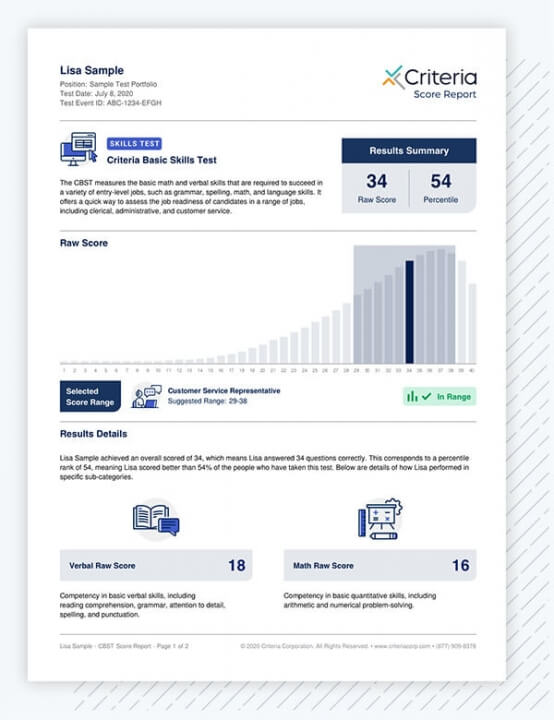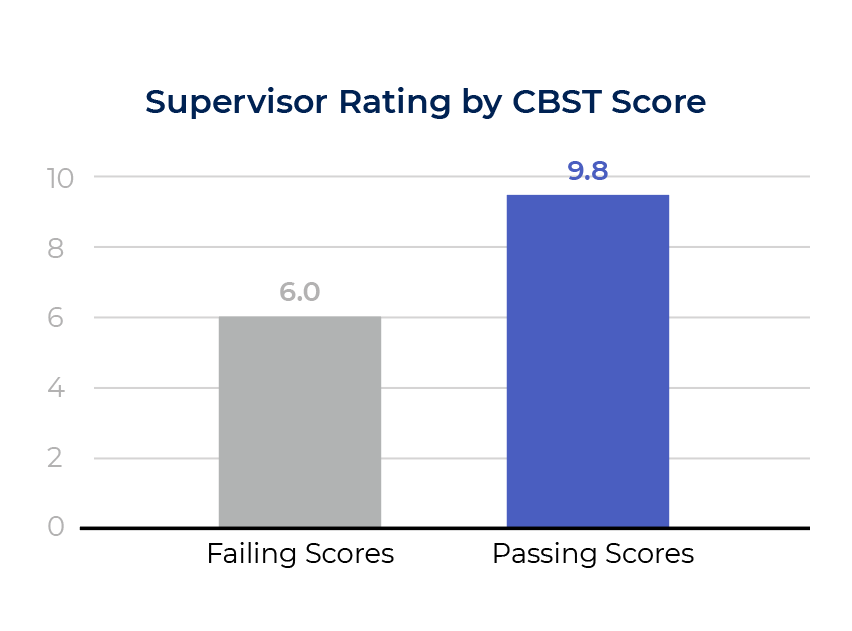Criteria Basic Skills Test (CBST)
Measures:
- Job readiness
- Trainability
- Learning ability
- Attention to detail
Recommended for:
- Most entry-level positions

Test Description
The Criteria Basic Skills Test (CBST) measures the basic math and verbal skills that are required to succeed in a wide variety of entry-level jobs. The CBST is a 20-minute, 40-item test that measures basic grammar, spelling, math, and language skills. It offers a quick way to assess the job readiness of candidates in a range of jobs, including clerical, administrative, and customer service positions.
Score Reports
Each individual is given a raw score and a percentile ranking. The raw score indicates how many questions (out of 40) the individual answered correctly, while the percentile ranking is a relative performance metric that indicates how the individual scored relative to others who have taken the test. For example, a percentile ranking of 45 means that an individual scored better than 45% of the group on which the test was normed.
Sample CBST Question:
Choose the word that completes the sentence correctly.
In recent years poker has ___________ quite popular.
- became
- become
- becoming
- becomes
- becomed
Answer: B
Validity Information
The CBST has been shown to predict performance for a variety of jobs in which basic verbal and math skills are required, including customer service positions, data entry, sales clerks, and more.
For example, in a sample of research associates at a market research firm, where research associates were required to conduct telephone-based surveys and perform data entry, there was an observed correlation of .26 between CBST performance and job performance. Job performance was measured by productivity ratings compiled by management and was compared to CBST scores. Individuals with failing CBST scores (raw scores less than 28) had an average productivity rating of 6.0, while those with passing scores had an average productivity rating of 9.8.
In a second study, CBST scores were compared to job performance data for sales clerks at an apparel retailer with eight store locations. There was a .27 correlation between CBST scores and job performance.
Standardization Sample
Norms for the CBST were developed using a sample of 1,064 individuals. The sample was made up of working adults aged 18 and older. These individuals were being assessed for employee selection purposes, and represented a mixture of individuals from over 60 companies whose current positions included customer support representatives, factory workers, sales associates, and clerical personnel.
The mean score for the standardization sample for the CBST was 30.9, the median score was 33, and the standard deviation is 7.53.
